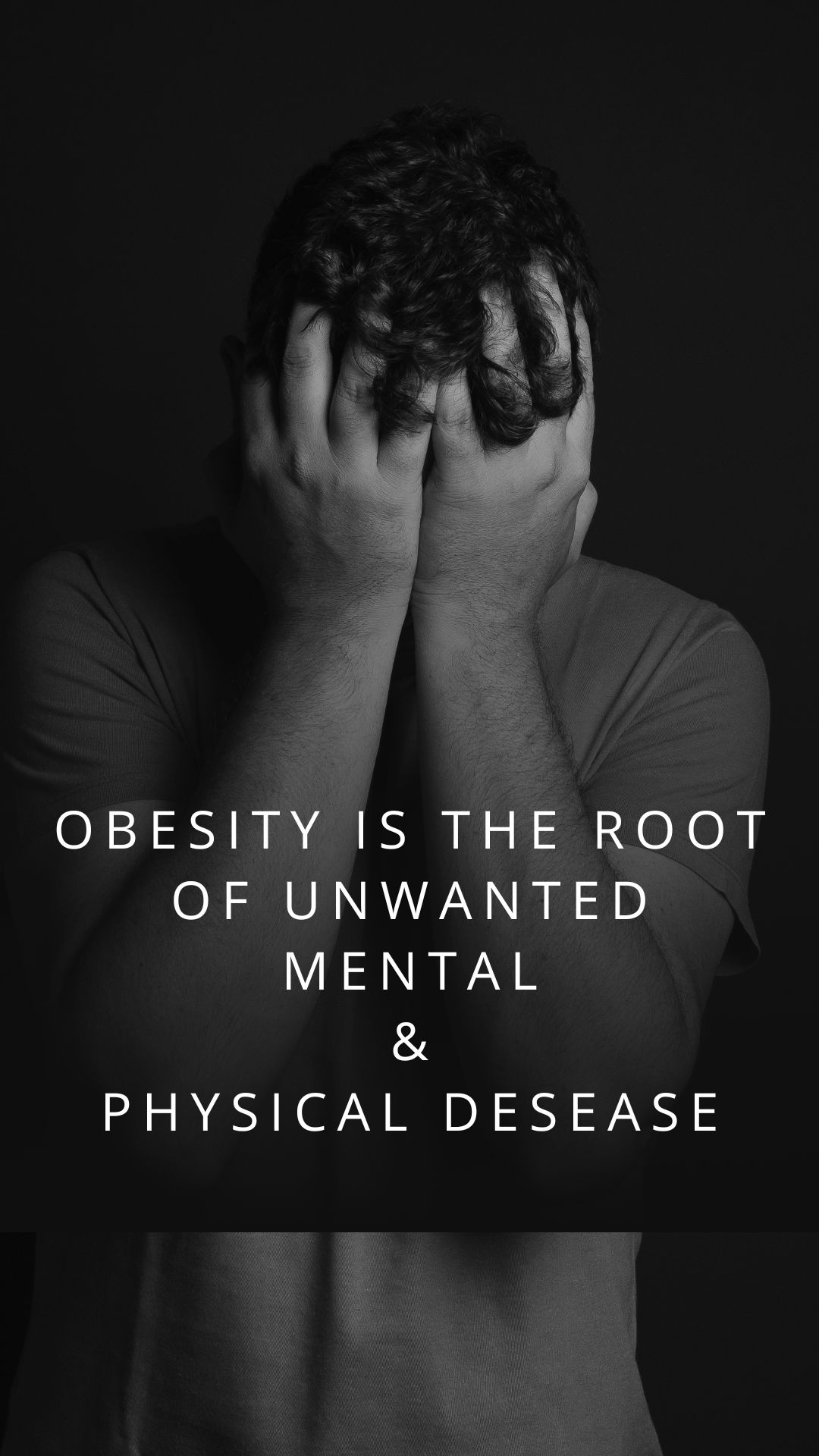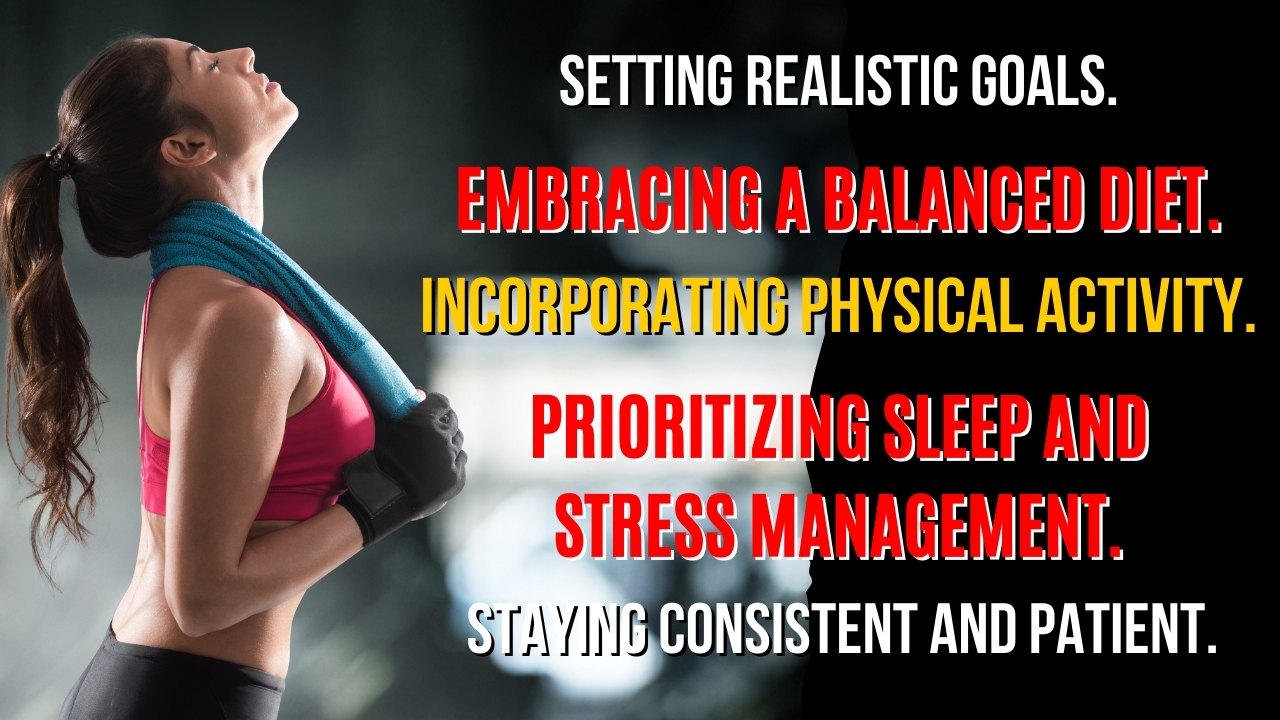
Lose Weight Fast: 5 Effective Strategies for Rapid Weight Loss
-
by admin
- 0
In today’s fast-paced world, many people are looking for ways to shed those extra pounds quickly and efficiently. Whether it’s for health reasons or to fit into that favorite pair of jeans, the desire to lose weight fast is common But it’s simple to feel overwhelmed by the amount of information available.
Before we dive into the process of loosing weight, lets have a look how obesity damaging our life in various way. Fear not! In this comprehensive guide, we’ll explore practical strategies to lose weight and tips to help you achieve your weight loss goals safely and sustainably.

- Health Risks and Medical Conditions: Obesity significantly increases the risk of developing various health conditions and medical complications. These may include:
- Type 2 Diabetes: Obesity is a major risk factor for insulin resistance and type 2 diabetes, leading to elevated blood sugar levels and increased risk of cardiovascular disease, nerve damage, and other complications.
- Cardiovascular Disease: Obesity is associated with high blood pressure, elevated cholesterol levels, and atherosclerosis, increasing the risk of heart attack, stroke, and other cardiovascular problems.
- Certain Cancers: Obesity is linked to an increased risk of developing various types of cancer, including breast, colon, ovarian, pancreatic, and prostate cancer.
- Respiratory Issues: Obesity can lead to respiratory problems such as sleep apnea, asthma, and obesity hypoventilation syndrome, which can impair breathing and decrease oxygen levels in the blood.
- Joint Pain and Musculoskeletal Disorders: Excess weight puts added strain on the joints, leading to conditions such as osteoarthritis, back pain, and musculoskeletal disorders.
- Mental Health Issues: Obesity can have negative effects on mental health, leading to depression, anxiety, low self-esteem, and body image issues.
2. Reduced Quality of Life: Obesity can significantly impact an individual’s quality of life and overall well-being. Physical limitations, chronic pain, and decreased mobility can make it difficult to engage in daily activities and enjoy hobbies or recreational pursuits. Obese individuals may experience social stigma, discrimination, and reduced opportunities for employment, education, and social interaction. Additionally, obesity-related health problems can lead to increased healthcare costs, frequent doctor visits, and a diminished sense of independence and self-esteem.
3. Financial Burden: Obesity imposes a significant financial burden on individuals, families, and society as a whole. The cost of obesity-related medical care, including hospitalizations, medications, and treatments, is substantial. Additionally, obese individuals may incur higher expenses for specialized equipment, adaptive aids, and modifications to accommodate their size and mobility needs. Furthermore, obesity-related absenteeism, disability, and productivity losses can impact workforce productivity and economic growth.
3. Impact on Relationships and Social Life: Obesity can affect interpersonal relationships and social interactions in various ways. Obese individuals may experience social isolation, exclusion, and discrimination due to weight-related stigma and prejudice. They may face challenges in forming romantic relationships, maintaining friendships, and participating in social events or gatherings. Negative body image and low self-confidence can hinder social interactions and intimacy, leading to feelings of loneliness, isolation, and dissatisfaction with personal relationships.
Also read “HOW TO STAY FIT DURING RAMADAN!
4.Shortened Lifespan and Mortality Risk: Obesity is associated with a significantly increased risk of premature death and reduced life expectancy. Chronic health conditions and comorbidities associated with obesity, such as cardiovascular disease, diabetes, cancer, and respiratory disorders, can contribute to a higher mortality rate.
Obesity-related factors such as poor diet, sedentary lifestyle, and metabolic dysfunction accelerate the aging process and increase the likelihood of developing life-threatening complications. Adopting a healthy lifestyle, including regular physical activity, balanced nutrition, and weight management, is essential for reducing the risk of obesity-related morbidity and mortality.

1. Setting realistic goals to lose weight.
When setting weight loss goals, it’s crucial to be realistic and attainable. Instead than concentrating on a single number on the scale, consider attainable benchmarks.. Start by evaluating your current weight, health status, and lifestyle to determine a reasonable target. Aim to lose 1-2 pounds per week, as this gradual approach is more sustainable and reduces the risk of regaining lost weight.
Break down your ultimate goal into smaller, actionable steps, such as increasing physical activity, making healthier food choices, and monitoring portion sizes. By setting realistic goals, you set yourself up for success and avoid feelings of disappointment or frustration.
2. Embracing a balanced diet to lose weight.
Adopting a balanced diet is essential for sustainable weight loss. Instead of resorting to restrictive diets or quick-fix solutions, focus on nourishing your body with wholesome, nutrient-rich foods. Your meals and snacks should include a range of fruits, vegetables, whole grains, lean proteins, and healthy fats. Aim to fill your plate with colorful, plant-based foods that provide essential vitamins, minerals, and antioxidants.
To lose weight Eat mindfully by taking your time, appreciating each mouthful, and being aware of your hunger cues. Remember, it’s about making healthier choices that you can maintain long-term rather than following strict rules or deprivation.
3. Incorporating Physical Activity to lose weight.
Regular exercise is a cornerstone of any successful weight loss plan. Aim to incorporate a mix of cardiovascular exercises and strength training into your routine to maximize calorie burn and build lean muscle mass. Cardiovascular activities such as walking, running, swimming, or cycling help increase heart rate and burn calories, while strength training exercises such as weightlifting or bodyweight exercises boost metabolism and promote muscle growth.
Aim for at least 150 minutes of moderate-intensity exercise per week, spread out over several days, and don’t forget to include activities you enjoy to stay motivated and engaged.
4. Prioritizing Sleep and Stress Management to lose weight.
Quality sleep and stress management are often overlooked but critical aspects of weight loss. Lack of sleep can disrupt hormone levels, increase appetite, and negatively impact metabolism, making it harder to lose weight. Aim for 7-9 hours of uninterrupted sleep per night and establish a consistent sleep schedule to support your body’s natural rhythms.
Additionally, prioritize stress-reducing activities such as meditation, deep breathing exercises, or yoga to help manage cortisol levels and prevent emotional eating. By prioritizing sleep and stress management, you’ll not only support your weight loss efforts but also improve overall health and well-being.
5. Staying Consistent and Patient to lose weight.
Consistency and patience are key virtues on the journey to weight loss. Recognize that there may likely be obstacles in your path and that development may not always be linear. Stay committed to your goals, even when faced with setbacks or plateaus. Track your progress using tools such as a food journal, activity tracker, or weight log to stay accountable and motivated.
Celebrate your achievements, no matter how small, and focus on the positive changes you’re making to your health and lifestyle. Remember, sustainable weight loss takes time, so be patient with yourself and trust the process. With dedication, consistency, and patience, you’ll reach your goals and create lasting changes for a healthier, happier life.

Conclusion
Getting thinner quick doesn’t need to be an overwhelming undertaking. By following these practical tips and strategies, you can embark on a journey to a healthier, happier you. Remember to set realistic goals, embrace a balanced diet, prioritize physical activity, prioritize sleep and stress management, and stay consistent and patient. With dedication and perseverance, you can achieve your weight loss goals and transform your life for the better.
In today’s fast-paced world, many people are looking for ways to shed those extra pounds quickly and efficiently. Whether it’s for health reasons or to fit into that favorite pair of jeans, the desire to lose weight fast is
In today’s fast-paced world, many people are looking for ways to shed those extra pounds quickly and efficiently. Whether it’s for health reasons or to fit into that favorite pair of jeans, the desire to lose weight fast is
